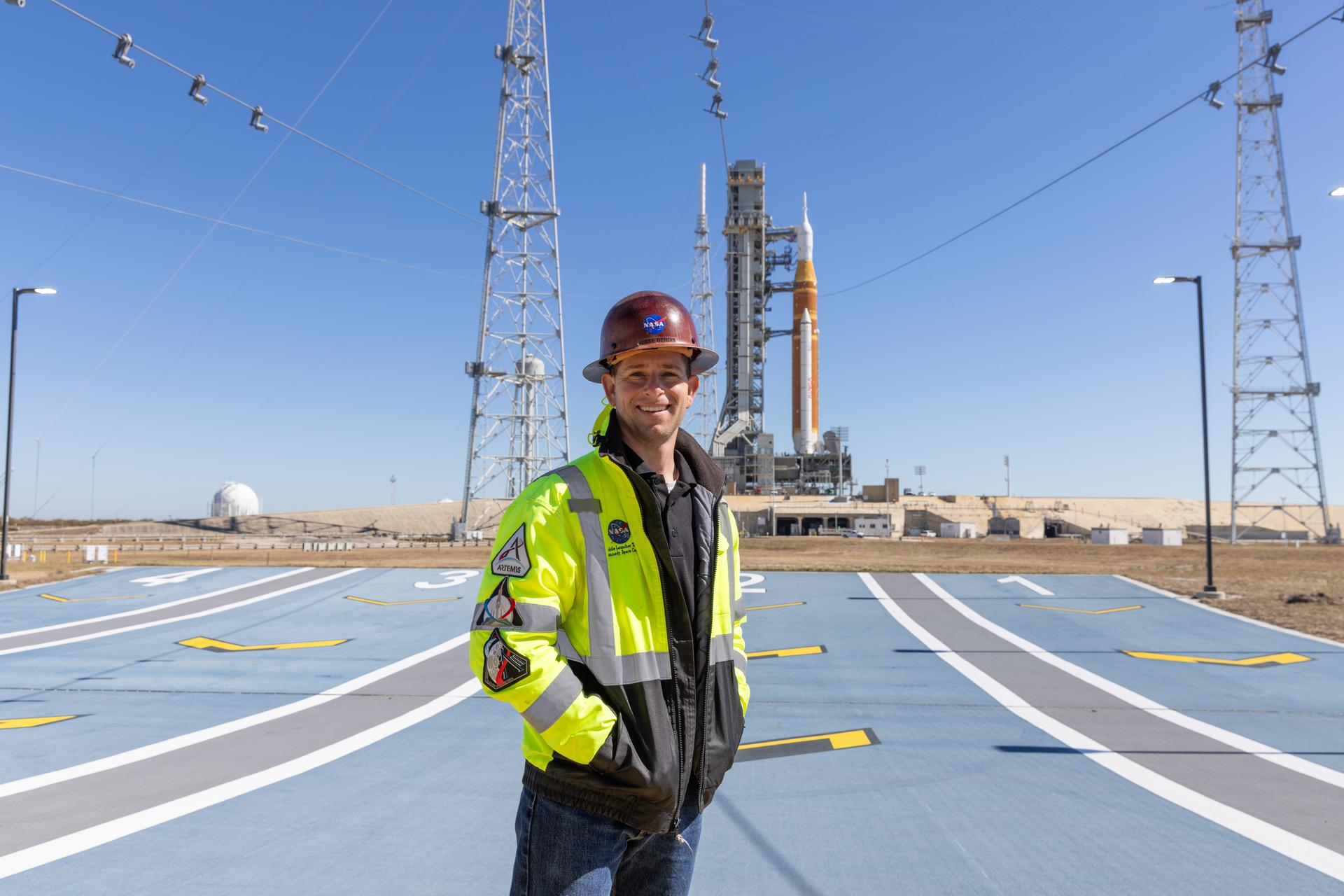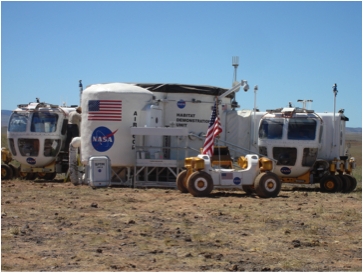Posted on: April 30, 2012
Branch / Organization: Space Science & Astrobiology Division
Desert-RATS is a field campaign which conducts mission rover and extravehicular activity testing in the challenging and remote terrain of Arizona.
Ames scientists have participated in Desert RATS as members of the Science Backroom team which is responsible for the strategic and tactical science planning and operations for the field test. This work is aimed at developing and testing a concept of operations to optimize the scientific return of combined astronaut and robotic systems exploring a planetary surface.
Mars Desert Research Station, Utah
Posted on: April 30, 2012
Branch / Organization: Space Science & Astrobiology Division

NASA Ames scientists have conducted multiple Mars mission simulations at the Mars Desert Research Station (MDRS) near Hanksville, Utah. Work at MDRS focuses on a variety of topics including technology testing, scientific research (geology and astrobiology), plus the study of human and robotic exploration.
FIDO Rover Testing
Posted on: April 17, 2012
Branch / Organization: Space Science & Astrobiology Division

FIDO is a high-fidelity terrestrial rover, the FIDO rover, that focuses on a tight coupling of engineering, science, instruments, and operations. FIDO was operated at Silver Lake (California), Black Rock Summit (Nevada), and Grey Mountain (Arizona). The people, hardware and software tools transitioned from the FIDO rover technology team to multiple Mars flight surface mission teams, including the Mars Exploration Rovers (MERs), Mars Science Laboratory, and Mars Phoenix Lander.
Testing Science Performance in a Planetary Surface Space Suit
Posted on: February 16, 2012
POC: Carol Stoker
Branch / Organization: Planetary Systems Branch (Code SST)

Performing scientific research work in a space suit is one of the major challenges of future human exploration of Planetary Surfaces. The work reported in this highlight aims to better characterize the science task performance impacts of wearing a space suit. Ames scientists Carol Stoker, Marybeth Willhelm, and Christopher Haberle (SST), in collaboration with University of North Dakota Space Suit developer Pablo de Leon conducted field trials wearing a prototype planetary surface space suit to perform field science tasks. The trials were conducted from February 6-10 at the Mars Desert Research Station, a simulated planetary surface base in the Utah desert. Activities tested included performing an ecological survey of extremophile microbes that inhabit rock habitats (endoliths), and conducting hand operated drilling activities. Tests determined the effectiveness, accuracy, and workload increase for performing tasks while wearing the space suit compared to the same task outside the suit. The work was funded by the Moon and Mars Analogs Research program, task Drilling on the Moon and Mars in Human Exploration (PI C. Stoker)
Subject Chris Haberle operates an electrical rotary percussive drill in Mars analog terrain while wearing the North Dakota NDX1 space suit.
Prototype Mars Drill
Posted on: January 11, 2010
POC: Carol Stoker
Branch / Organization: Space Science & Astrobiology Division

Carol Stoker and the MARTE team have been testing a prototype Mars drill to search for sub-surface life on the red planet



























